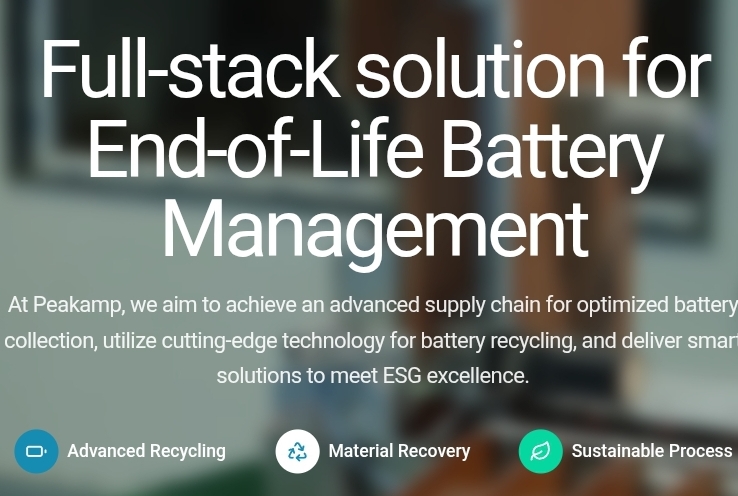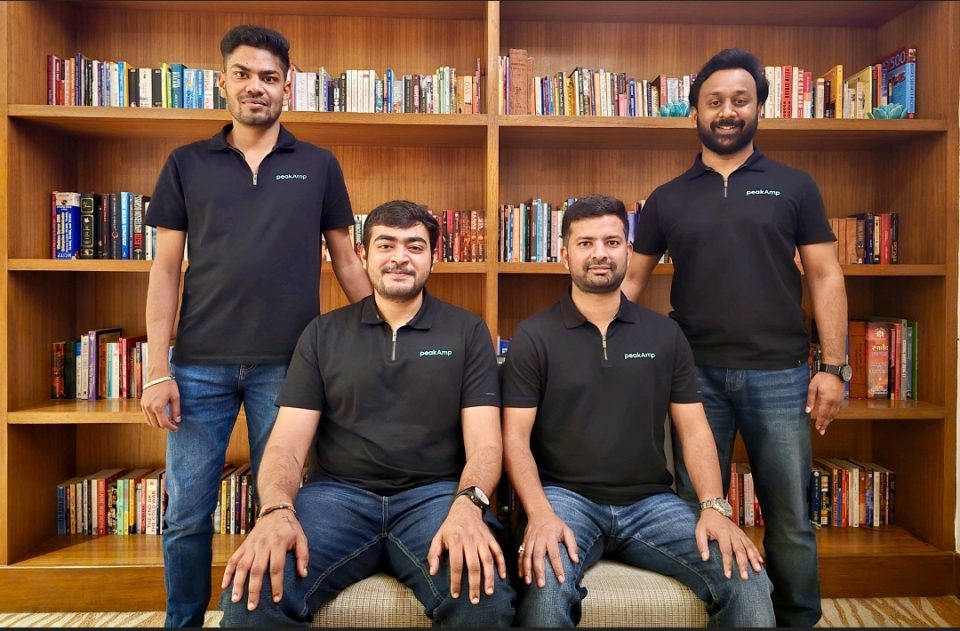PeakAmp’s ₹12 Crore Seed Investment: Powering India’s Battery Circularity Revolution
Picture this: you’re driving an electric vehicle today, contributing to cleaner cities and reduced emissions. But what happens when that battery reaches the end of its useful life in your car? Until recently, this question didn’t have a compelling answer in India. However, that narrative is changing rapidly with companies like PeakAmp stepping forward.
Moreover, India faces a fascinating contradiction in its clean energy journey. While the nation accelerates toward 500 GW of renewable capacity by 2030, it simultaneously grapples with an 8x shortfall between existing battery recycling capacity and future requirements. Therefore, this gap represents not just a challenge, but a massive opportunity for innovation and sustainable growth.
The Investment That’s Changing Everything
Recently, PeakAmp secured ₹12 crore (approximately $1.37 million) in seed funding led by Caret Capital. Additionally, this round attracted participation from IIM Ahmedabad Ventures, renowned angel investor Basant Sharma and Group, alongside other prominent clean-tech investors.
Founded in 2024 by Vijay Gond and Aditya Sudhanshu, PeakAmp targets a critical gap in India’s clean energy ecosystem. Furthermore, the company builds India’s first full-stack, technology-enabled solution for end-of-life battery management. Consequently, this comprehensive approach addresses collection, segregation, recycling, second-life repurposing, and high-purity material recovery.
Understanding the Customer Experience Challenge
From a customer experience perspective, traditional battery disposal creates significant pain points for consumers. Initially, EV owners face uncertainty about proper battery disposal methods. Subsequently, they encounter limited collection infrastructure and unclear recycling processes. Meanwhile, manufacturers struggle with Extended Producer Responsibility compliance and traceability requirements.
However, PeakAmp’s full-stack approach transforms this fragmented experience into a seamless circular journey. Instead of multiple touchpoints and unclear processes, customers now access integrated solutions spanning the entire battery lifecycle. Therefore, this holistic approach significantly improves stakeholder satisfaction while addressing sustainability concerns.
The Technology Behind the Innovation
PeakAmp’s advanced materials-recovery technology delivers remarkable efficiency metrics. Specifically, the company achieves over 99% efficiency and purity for critical metals including lithium, nickel, and copper. Furthermore, this performance matches global benchmarks, where leading recycling facilities achieve 90-99% recovery rates for key materials.
Additionally, the startup develops a growing reverse-logistics network for safe transportation and traceability of end-of-life batteries. Moreover, the company embeds rigorous compliance and end-to-end traceability throughout the battery value chain. Consequently, this comprehensive tracking addresses regulatory requirements while building consumer trust.
Market Dynamics Driving Growth
India’s EV market presents compelling growth trajectories that directly impact battery recycling demand. Specifically, the market is expected to surge from $35 billion in 2024 to $111 billion by 2029. Meanwhile, over 80 million EVs will hit Indian roads during this period.
Furthermore, NITI Aayog projections indicate India’s EV battery recycling market expanding from 2 GWh in 2023 to 128 GWh by 2030. Additionally, electric two-wheelers accounted for approximately 60% of all EV sales in 2024, making them the leading segment. Therefore, this rapid adoption creates substantial end-of-life battery volumes requiring proper management.
The Investment Ecosystem Perspective
Caret Capital’s investment thesis reflects broader market confidence in circular economy solutions. According to Managing Partner Karan Mittal, “PeakAmp’s tech-enabled, partnership-driven model is built for scale”. Moreover, the firm recognizes PeakAmp’s potential role in India’s energy independence strategy.
Similarly, Managing Partner Pankaj Bansal emphasizes the urgency: “Circular economy solutions are no longer optional—they’re mission-critical”. Furthermore, this perspective aligns with global trends where the lithium-ion battery recycling market reached $138.62 million in 2023, expecting 44.8% CAGR growth through 2030.
Addressing India’s Resource Security Challenge
India’s clean energy transition faces significant mineral dependency challenges. Currently, the country imports substantial quantities of lithium, nickel, cobalt, and other battery materials. However, effective recycling can reduce this dependency while strengthening domestic supply chains.
Additionally, recycling offers environmental advantages over mining new materials. Stanford University research demonstrates that battery recycling produces 58-81% fewer greenhouse gas emissions compared to mining virgin materials. Furthermore, recycling uses 72-88% less water and 77-89% less energy than traditional extraction methods.
Strategic Partnerships and Industry Traction
PeakAmp demonstrates impressive early traction through successful pilot programs with leading industry players. Additionally, the company forges partnerships across the entire battery lifecycle ecosystem. Meanwhile, these collaborations span collection and logistics through disassembly and materials recovery.
Furthermore, this partnership-driven approach aligns with circular economy best practices. Instead of vertical integration alone, PeakAmp creates value networks that optimize resource flows while minimizing environmental impact. Consequently, this strategy enhances scalability while reducing capital requirements.
The Investor Profile: Understanding the Backing
Caret Capital represents a sustainability-focused thematic venture capital fund. Moreover, the firm targets category-building startups across smart mobility, distribution and supply chain, and jobs sectors. Additionally, these sectors potentially represent $1.2 trillion in India’s growth story by 2030.
Meanwhile, IIM Ahmedabad Ventures brings deep expertise in supporting innovation-driven startups. Furthermore, the platform has funded nearly 400 startups with $16-18 million in cumulative investments. Therefore, this backing provides PeakAmp with strategic guidance alongside capital.
Angel investor Basant Sharma adds valuable industry connections through his extensive portfolio. Specifically, his investments span clean technology, logistics, and healthcare sectors. Additionally, his TCS background provides corporate partnership insights that benefit scaling startups.
Regulatory Framework and Compliance Advantages
India’s Battery Waste Management Rules (2022) create structured requirements for battery recycling. Specifically, these regulations mandate 90% materials recovery by 2027 and require 5% recycled content in new batteries by 2027, rising to 20% by 2030-31. Therefore, these mandates create favorable market conditions for established recyclers like PeakAmp.
Moreover, Extended Producer Responsibility frameworks require battery manufacturers to ensure proper end-of-life management. Consequently, partnerships with specialized recyclers like PeakAmp help manufacturers meet compliance obligations while focusing on core business activities.
Innovation in Second-Life Applications
Beyond traditional recycling, PeakAmp emphasizes second-life battery applications through state-of-the-art diagnostics. Furthermore, these assessments determine cell health and enable repurposing for energy storage systems. Additionally, this approach maximizes battery value while extending useful lifecycles.
Second-life applications represent significant market opportunities, particularly for grid energy storage and residential backup power. Moreover, batteries retaining 80-85% capacity can effectively serve these applications before requiring full recycling. Therefore, this staged approach optimizes resource utilization while generating additional revenue streams.
Global Context and Competitive Positioning
Internationally, battery recycling technology continues advancing rapidly. Recent breakthroughs achieve 99.99% lithium recovery using environmentally friendly amino acid processes. Furthermore, citric acid-based methods recover over 99% of critical metals while minimizing chemical consumption.
PeakAmp’s 99%+ efficiency positions the company competitively with global leaders. Additionally, the startup’s integrated approach differentiates it from purely technology-focused or logistics-centered competitors. Consequently, this comprehensive solution addresses multiple customer pain points within a single platform.

Economic Impact and Job Creation Potential
The battery recycling industry generates substantial employment opportunities across multiple skill levels. Initially, collection and logistics operations require widespread geographic presence. Subsequently, processing facilities need technical specialists and engineers. Meanwhile, quality control and compliance functions demand analytical expertise.
Furthermore, Caret Capital’s mission includes creating 10 million jobs while reducing 10 million metric tons of CO2 emissions. Therefore, investments like PeakAmp contribute to both environmental and social impact objectives. Additionally, the circular economy model creates more distributed economic value compared to linear extraction-consumption patterns.
Looking Forward: Scaling Challenges and Opportunities
PeakAmp faces several scaling considerations as it expands operations. Initially, building collection infrastructure requires significant geographic coordination and investment. Subsequently, processing capacity must scale proportionally with battery volume growth. Meanwhile, technology advancement continues accelerating, requiring ongoing innovation investment.
However, favorable market dynamics support rapid scaling. Government policies increasingly favor domestic recycling capabilities. Moreover, corporate sustainability commitments drive demand for certified recycling services. Additionally, import dependency concerns motivate policy support for domestic circular economy solutions.
The investment in PeakAmp represents more than financial backing for a promising startup. Instead, it symbolizes India’s commitment to building a comprehensive circular economy that transforms waste into value. Furthermore, by addressing the critical gap between battery disposal needs and recycling capacity, PeakAmp contributes to energy security while creating sustainable economic opportunities.
Through innovative technology, strategic partnerships, and comprehensive solutions, PeakAmp is positioning itself as a cornerstone of India’s clean energy future. Moreover, the company’s success could inspire similar ventures while demonstrating the viability of circular economy business models. Ultimately, this investment marks a significant step toward energy sovereignty and environmental sustainability in India’s rapidly evolving mobility landscape.

